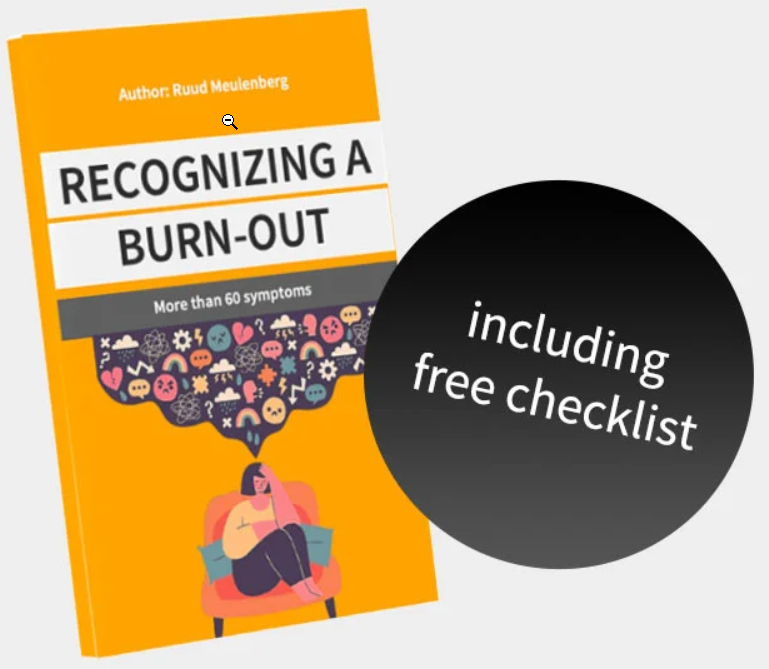Chronic stress has become a common issue in today’s fast-paced world, with many of us struggling to cope and manage the response that it triggers. So affected are we, that many people turn to unhealthy coping mechanisms such as alcohol and smoking to cope. However, there is a healthier way and it’s all around us. It’s called nature.
Nature has a powerful healing effect on our physical and mental selves, and it’s a well-known fact that spending time outside can help manage feelings of pressure. Indeed, studies have shown that exposure to nature can lower blood pressure, improve our mood, and enable us to cope better.
In this article, we will explore the science behind the healing power of the great outdoors and provide tips and techniques for incorporating it into your daily routine. We’ll also discuss the benefits of outdoor activities for anxiety reduction as well as share ideas on how to make the most of being outside.
How Spending Time in Nature Helps
Stress and anxiety are two of the most common mental health issues that people face today. Chronic stress can cause a range of physical and mental health problems and illness in the body including depression, anxiety, high blood pressure, chest pain and even burnout.
Managing ourselves when we experience stress is key to preventing these serious mental health, and physical symptoms and enable us to maintain a high quality of life. Studies have shown that spending time in nature can help to manage stress when we experience pressure-inducing situations, feel the stress hormones activate or feel overwhelmed.
Choose the help that suits you.
Our dedicated team of experts is here to guide and support you in the most difficult times of your life.
One American study conducted by researchers at the national institute of the University of Michigan found that spending time outside can improve cognitive function (memory and attention span) and reduce symptoms of depression and anxiety. The study also found that exposure to the natural environment can reduce levels of the stress hormone cortisol, which is linked to the body’s stress response.
This is just one study that demonstrates the powerful effect that nature can have on our health.
Nature’s Ability to Promote Relaxation
The healing power of nature is not just a belief or an anecdote, but a scientifically proven phenomenon. For example, it promotes relaxation through its ability to control and reduce the activity of the sympathetic nervous system.
The sympathetic nervous system [1] is responsible for the “fight or flight” response, which is triggered by stress or pain. When activated, it can cause a range of physical and emotional symptoms, including increased heart rate, rapid breathing, and feelings of anxiety. Exposure to natural surroundings during stress has been shown to reduce sympathetic nervous system activity, which can lead to a reduction in these symptoms.
Nature helps us relax and feel calm by calming down the thinking part of our brain, called the prefrontal cortex. This part handles decisions and solving problems. When we’re too active or stressed, we may feel pressured and find it harder to think clearly.
Exposure to the natural environment has been shown to reduce the activity of the prefrontal cortex, which can lead to a reduction in these symptoms. This is believed to be due to the calming effect it has on our senses and can affect our overall mental state.
Incorporating Nature into Daily Routine
Incorporation into your daily routine doesn’t have to be difficult or time-consuming. Here are some simple techniques you can use:
- Take a walk: Even just a short walk can help reduce anxiety levels and improve our mood. Make it a daily habit to take a walk whether it’s during your lunch break or in the morning or evening.
- Start gardening: Gardening is a great way to connect with the outdoors and get some physical activity at the same time. Whether you have a small balcony or a large garden, caring for plants can be a therapeutic activity that helps improve your mental health.
- Eat lunch outside: If you have an outdoor space near your workplace, try taking your lunch outside. This can help you get some vitamin D and enjoy some fresh air.

- Meditate outdoors: Meditating outdoors can be a calming experience that allows you to find inner peace. Find a quiet spot in nature and spend some time breathing deeply, and focusing on the external environment.
- Go for a bike ride: Going for a bike ride is a great way to get some exercise and enjoy the outdoors. You can also explore new areas and take in some beautiful scenery.
- Have a digital detox: We’re constantly bombarded with notifications and messages that can add to our stress levels. Taking a digital detox can help you disconnect from technology and focus on the present moment, which can be a calming and rejuvenating experience.
Benefits of Outdoor Activities for Stress Reduction
Outdoor activities can be a great way to reduce anxiety levels and improve our overall well-being. Here are some of the benefits of outdoor activities:
- Natural form of Exercise: These include activities from hiking and cycling to jogging, open swimming or even tai chi. All are physical forms of exercise partaken outside which have a positive effect on the physical body and can contribute to improving our mood.
- Exposure to Nature: Outdoor activities allow us to spend time in nature, which has a calming effect on our senses and can reduce feelings of anxiousness.
- Social Connection: Outdoor activities can be a social activity that allows us to connect with others and build relationships, which is an important factor in reducing stress levels.
- Exposure to Sunlight: Exposure to sunlight can help regulate our sleep-wake cycle, which can improve our mental state and reduce symptoms of depression.
Tips for Making the Most of Time Outdoors
Connecting with nature can be a powerful way to reduce levels of pressure and improve our mental health. Here are some tips for making the most of your time outdoors:
- Use your Senses: Use your senses to connect with nature. Simply put away your phone or other devices and focus on the sounds and sensations around you. See the colours, notice the smells, hear the sounds, and feel the textures around you and try to engage all of your senses in the experience.
- Be an Observer: Whether it’s bird watching or just sitting quietly and taking in the environment, being an observer allows you to connect with nature in a meaningful way and can make troubles seem far away.

Download our
free e-book
Recognizing a burnout
(more than 60 symptoms)
- Practice Gratitude: Take some time to reflect on the things that you’re grateful for whilst out in nature. This can help shift your focus to the positive aspects of your experience and reduce stress levels.
- Be Mindful: Outdoor activities provide an opportunity to practise mindfulness and focus on the present moment, which can be a powerful way to reduce stress levels and find inner peace.
Where to get Help with Managing Stress
If you’re feeling overwhelmed and stressed and need support, there are many resources available that can help manage feelings of pressure before they turn into longer-term chronic conditions and burnout.
Stress Coach
One option is to work with a stress coach who incorporates outdoor activities into their practice. Nature therapy combines the benefits of being outdoors with the guidance of a trained professional to help manage pressure and promote overall well-being. By working with a coach who conducts sessions outside, you can tap into the healing power of the outdoors while also receiving personalized support and guidance.
In addition to working with a specially trained coach, there are many other types of support available.
Therapy
Talking to a doctor, licensed therapist, healthcare provider or even a family member can provide a safe and supportive space to explore the root causes of stress. Verbal offloading can in turn help to control stressed feelings and physical symptoms and deactivate stress hormones.
Learning effective coping strategies to manage and control when you feel pressured can enable you to minimise the propensity to feel overwhelmed, and probability of suffering anxiety-related physical symptoms such as pain and illness in the body.
Support Groups
Joining a support group, for example, whether in-person or online, can provide a sense of community and connection with others who are going through similar health experiences.
Self-Help Resources
There are many self-help books, podcasts, and other resources available that provide guidance and support for managing stress and anxiety.
Conclusion
The natural world has long since been perceived to be the purest form of stressbuster. Spending time outdoors can help us to slow down and appreciate the beauty of the world around us. It allows us to take a break from the constant stimulation and distractions of modern life and connect with something greater than ourselves.
Nature also has a way of putting things into perspective – the vastness of the natural world reminds us that our problems and worries are small in the grand scheme of things. By finding inner peace through the natural environment, we can improve our overall well-being and lead happier, more fulfilling lives.
So, next time you’re feeling stressed or overwhelmed, take a break, and spend some time outdoors. You may be surprised at how much it can help.
Stress & burnout coaching; for 100% recovery!
Reducing stress and recovering from burnout is simply incredibly difficult. The coaches at Meulenberg Training & Coaching understand exactly what you are going through and know how tough it can be. They have often experienced it themselves! With their years of experience and expertise, they are ready to help you step by step toward a full recovery. The results of our one-on-one coaching and absenteeism training will benefit you for a lifetime!
FAQ
References
- Britannica.com – sympathetic nervous system – Found on 06/05/2024
Link to a page on britannica.com






